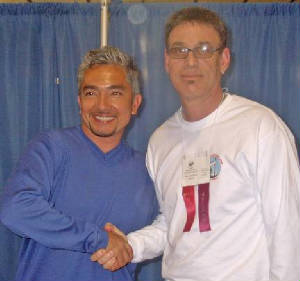Theories of Discipline - How to Discipline a Dog Without Harming Future Behaviors
Disciplining a dog is an essential aspect of their training journey, but it requires a delicate balance of assertiveness and compassion. As responsible dog owners, we must strive to discipline our furry companions in a way that fosters a positive and respectful relationship, laying the groundwork for well-rounded behaviors in the future.
Dogs do not understand discipline the way humans do, and so the way that we – as dog owners – need to think about discipline (how, when, and why) will need to change in order for us to do it effectively. The following are some tips and information on discipline that all dog owners will need to consider.
Pay Attention to Your Dog’s Cues About Hot Ground
Chicago isn’t known for its heat waves. But the weather is getting hotter every year, and that means that we have to make adjustments. One of those adjustments is gaining a better understanding of when to take your dog outdoors, especially with regards to the heat on the street or walkway. When direct sunlight hits the ground, the ground can get hotter than many of us even imagine.
You Want a Dog – But Do You Actually Want a Cat?
Dogs are amazing animals. They are loving. They are thoughtful. They are brilliant. They give more love than essentially any other pet, and for active dog owners, they become a companion that you can take with you wherever you go.
But dogs also take work. They take training. They take food. They require regular walks and play. Before you decide to pick up a new dog, the first thing you should ask yourself is: Do you actually want a cat?
Online Dog Training Courses from Author Marc Goldberg
Marc Goldberg, the co-author of "Let Dogs Be Dogs" and "The Art of Training Your Dog" is located in Chicago, IL. But not everyone that visits our site or learns about Marc is local. That is why we are thrilled to be able to offer comprehensive online dog training courses.
Each one of these courses contains many of the exact same learning opportunities as you would have in person with Marc at the Little Dog Farm. We can work together using an online video service, like Zoom, and utilize the same techniques and strategies that we would do together in person if you were local.
Training Your Dog According to Their Breed Specific Traits: Golden Retriever
We often teach out dogs the tricks and behaviors that we think are the most fun for us. But we do not often look at ways that we can make dog training more fun for our dogs – not only when learning the behavior, but also in maintaining it.
One of the strategies that we believe in here at Chicago Dog Trainer is to let your dog be a dog. In fact, we don’t want to just let your dog be a dog. We want you to let your dog be the breed of dog that they are. Some dogs love to dig. Some love to herd. Some love to run. Different dog breeds have different tendences. We believe that you should train your dog according to its preferred behaviors.
Does Your Dog Need to Walk in the Middle of the Day?
We’re all familiar with the concept of dog walks. Your dog is an animal that needs to move. It wants to exercise, see the world, take in the smells, and more. From the moment you take home a puppy, your life has to include regular walks for your pets – sometimes as long as 1 to 1.5 hours or more.
Most of us are dog lovers, and we have no problem with the idea of walking our dogs. But we also work. We have lives. We can walk our dogs when we come home from work, but what about during the day?
Tips for Lifting Your Dog Correctly
Many dogs do not like to be carried. Others will endure it. But it can often be necessary to lift your dog to help them onto the couch or into the car, or to move them after an injury. There is a right way to hold your dog to avoid injury or stressing your dog unnecessarily.
How to Stop Your Dog from Licking His Paws
Dogs can lick their paws for a variety of reasons. If your dog is licking or chewing at his paws once in a while and only for a few seconds at a time, there is likely no need to worry. But if the behavior becomes frequent, it could indicate a problem.
A dog licking his paws could expose him to any germs or chemicals that he might have walked through earlier. It could also indicate a medical issue that may necessitate a vet visit or some other care on your part, so it is helpful to know the cause.
How to Create an Emergency Preparedness Plan for Your Dog
It is recommended that every family have an emergency preparedness plan in the event of a natural disaster or something that forces them to leave their home in a hurry. For the human members of your family, an emergency preparedness kit could include important documents, extra cash, non perishable foods, and an agreed upon meeting space.
If you have dogs in your home, your emergency preparedness plan should extend to them as well. This includes having all the items that you will need for your dog readily available, a plan for their safety, and some basic training where possible to help keep your pet as calm as possible in the event of an emergency.
Why Leadership is a Must in Dog Training
Dogs are pack animals. In the wild, they have a pack hierarchy with an alpha dog. This dog leads the pack and is responsible for ensuring the safety and discipline of the others. From only a few weeks old, wild wolves and dogs begin to understand who the leaders of their pack are from a young age.
The pet dog in your home will obviously have a different lifestyle from a dog in the wild, but the importance of the pack remains. By establishing yourself as a leader for your dog, you can help make the training process easier and build a stronger connection between you and your dog.
Can a Dog Be Too Old to Train?
There is a common saying that you cannot teach an old dog new tricks. Often, dog owners will take this to mean that once a dog reaches a certain age, it is no longer possible to train him. While it is beneficial for training to begin when a dog is a puppy since those are the most formative months, this saying is far from true.
Older dogs can still learn new behaviors so if you have adopted an older rescue or forgot to train your dog when he was younger, there is still hope that you can get a well behaved dog. You simply need to be aware of the differences and choose the right approach for training.
Why Do Dogs Lick?
There is a common belief that licking behavior in dogs is their way of showing affection and that the licks are kisses. This is true to some extent, but there can be more that goes into this behavior besides a desire to show affection.
Understanding why dogs lick can give you better insight into your dog, as well as be a good indicator of any health problems that could cause licking behaviors.
Our Philosophy & Goals
Our philosophy is simple. Improve the life of both dog and family. All too often, unruly dogs do not fully enjoy life because their families constantly become upset and frustrated with them. This is difficult for both family and dog.
Our mission is simple. Make both dog and family happy.
What does is take to make your dog happy? He will thrive when you give him leadership and attention.

Making the family happy is a bit more complex.
Families typically want their dog to:
- Come when called, every time, on or off leash
- Walk nicely on a loose leash without pulling
- Sit until released
- Down until released
Families also want their dogs:
- Not to jump on people
- Not to charge through doors
- Not to dig in the garden
- Not to bark and chew inappropriately
- Not to climb on furniture you prefer they avoid
- Not to sniff and eat off the table and counters.
- Not to be wild and uncontrollable
- Not to ignore you when you want their attention




